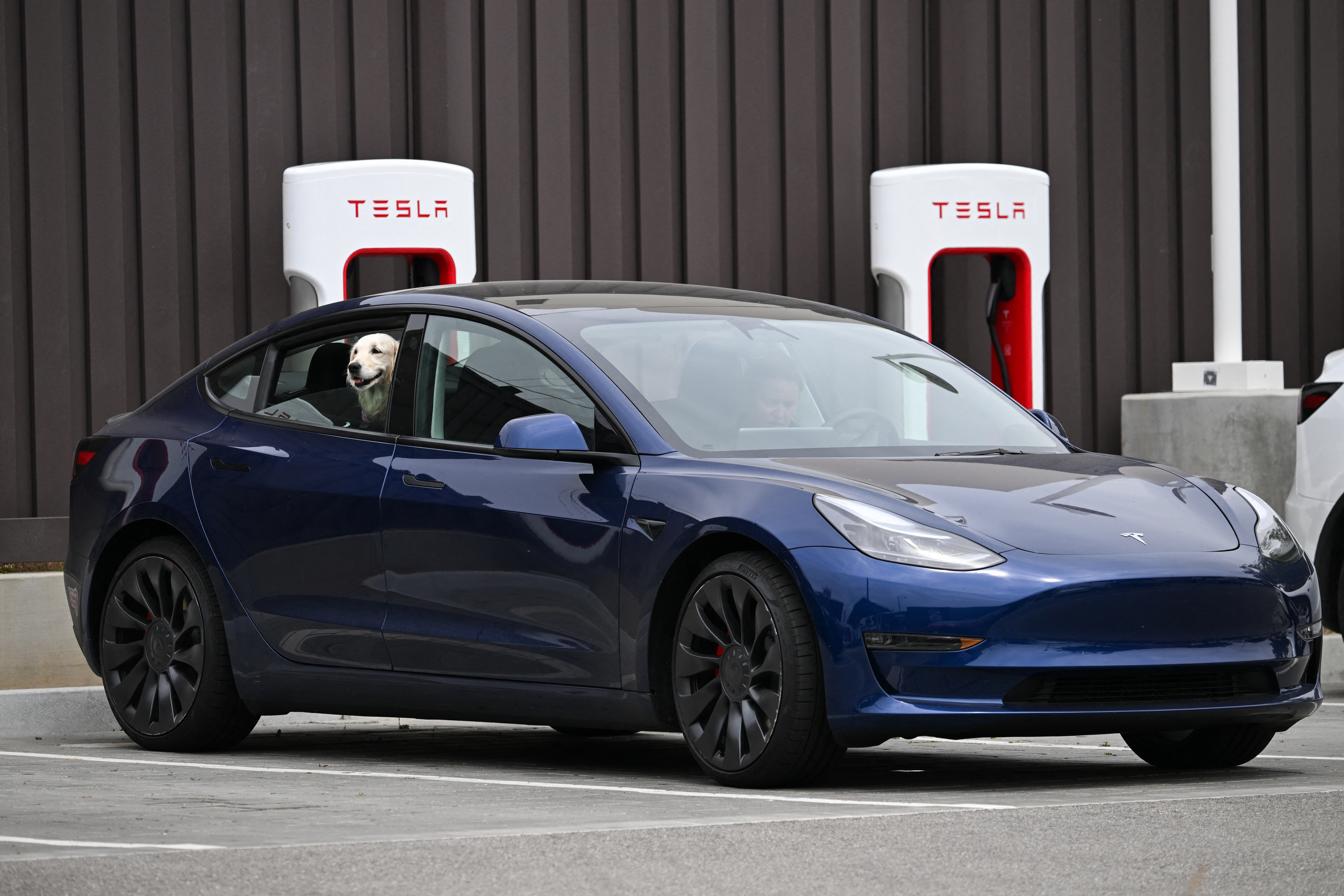Tesla loses top public policy staffers amid challenging times for the carmaker

Several members of Tesla’s lobbying and public policy team — including its top federal lobbyist — are departing the company, leaving the office responsible for influencing U.S. and global policy in flux as the electric vehicle giant faces increasing international competition.
Hasan Nazar — who led federal U.S. policy for Tesla — is departing, along with other policy staffers including Patrick Bean and Brooke Kintz, according to two people familiar with the situation granted anonymity to discuss sensitive personnel issues. Bean oversaw global charging and energy policy, and Kintz led state-level policy in the U.S. and oversaw work in North America.
It’s unclear who now leads the company’s federal lobbying arm in Washington at a critical time for the electric vehicle maker. Its Washington office is tasked with shaping U.S. attitudes on a host of acute policy fights, including trade, EV tax credits, infrastructure and emerging regulations of autonomous vehicles.
The news of the departures comes shortly after the company’s vice president for policy and business development, Obama administration alumnus Rohan Patel, left Tesla. Patel announced his exit last month on X, the platform formerly known as Twitter (in which Musk became the largest shareholder in 2022).
The company has spent more than $2.7 million lobbying the federal government since the start of 2021, according to federal lobbying disclosures.
The departures among Tesla’s policy team extend beyond those seeking to influence key government players in Washington. Chris Reilly, who led Tesla’s business development for major Nevada investments, is also leaving the company, he announced on LinkedIn earlier this month. Eugenio Grandio, who led government affairs in Mexico, is also departing, according to one of the people familiar with the situation.
Tesla did not return a request for comment through a general press email. However, the company dissolved its U.S. press shop four years ago, so it is not clear who is handling media inquiries for the company.
Nazar, Bean, Kintz and Grandio did not return requests for comment.
The turmoil at Tesla hits at an uncertain time for the company. Its net income dropped 55 percent in the first quarter of 2024 compared to the same quarter last year, and Korean companies Hyundai and Kia have become major competitors to Tesla’s U.S. business.
In response to potential competitive threats from China among electric vehicle producers, the Biden administration announced this week that tariffs on electric vehicles from China would quadruple, to 100 percent. BYD, the Chinese company that is the world’s largest electric vehicle maker, has said it would develop operations in Mexico, and U.S. Trade Representative Katherine Tai has said that a potential workaround to avoid new tariffs on Chinese electric vehicles was “of serious concern.”
But President Joe Biden has framed his moves to overcome Chinese dominance on electric vehicles as interrelated with his pledges to union workers — an effort that Tesla complicates. As part of the public campaign around those tariffs, Biden said earlier this week that “the future of the electric vehicles will be made in America by union workers.” Tesla is not unionized, and Musk has made his public opposition to unionization well-known.
The Information previously reported that Musk told staff he was dissolving the public policy team, a move that coincides with Tesla’s larger goal to lay off 10 percent of its workforce.
As many of those charged with kindling relationships with lawmakers leave the company, Musk himself has taken on a greater role in political punditry and outreach, testing his influence as a Washington powerbroker. He visited the White House in September and recently met with former President Donald Trump. Last year, Musk joined Florida Gov. Ron DeSantis on what was then known as Twitter Spaces for DeSantis’ technologically challenged presidential campaign launch.
The Biden administration has enjoyed, at least in part, a mutually beneficial arrangement with Tesla as it seeks to promote the use of electric vehicles as part of its fight against climate change. But even as Musk’s company has cashed in millions from Biden’s infrastructure bill for EV chargers, his relationship with the White House has grown testy. The White House slammed Musk for offering his support to an antisemitic X post that blamed Jewish people for “hatred against whites” and appeared to reference a conspiracy theory that Jewish people seek to replace white people through migration.
Last month, as other tech billionaires enjoyed a White House state dinner honoring Japan — including Amazon founder Jeff Bezos and Apple CEO Tim Cook — Musk did not. The Tesla CEO has called the president “a damp [sock] puppet in human form” and accused the administration of promoting illegal immigration for political advantage.
Source: politico.com